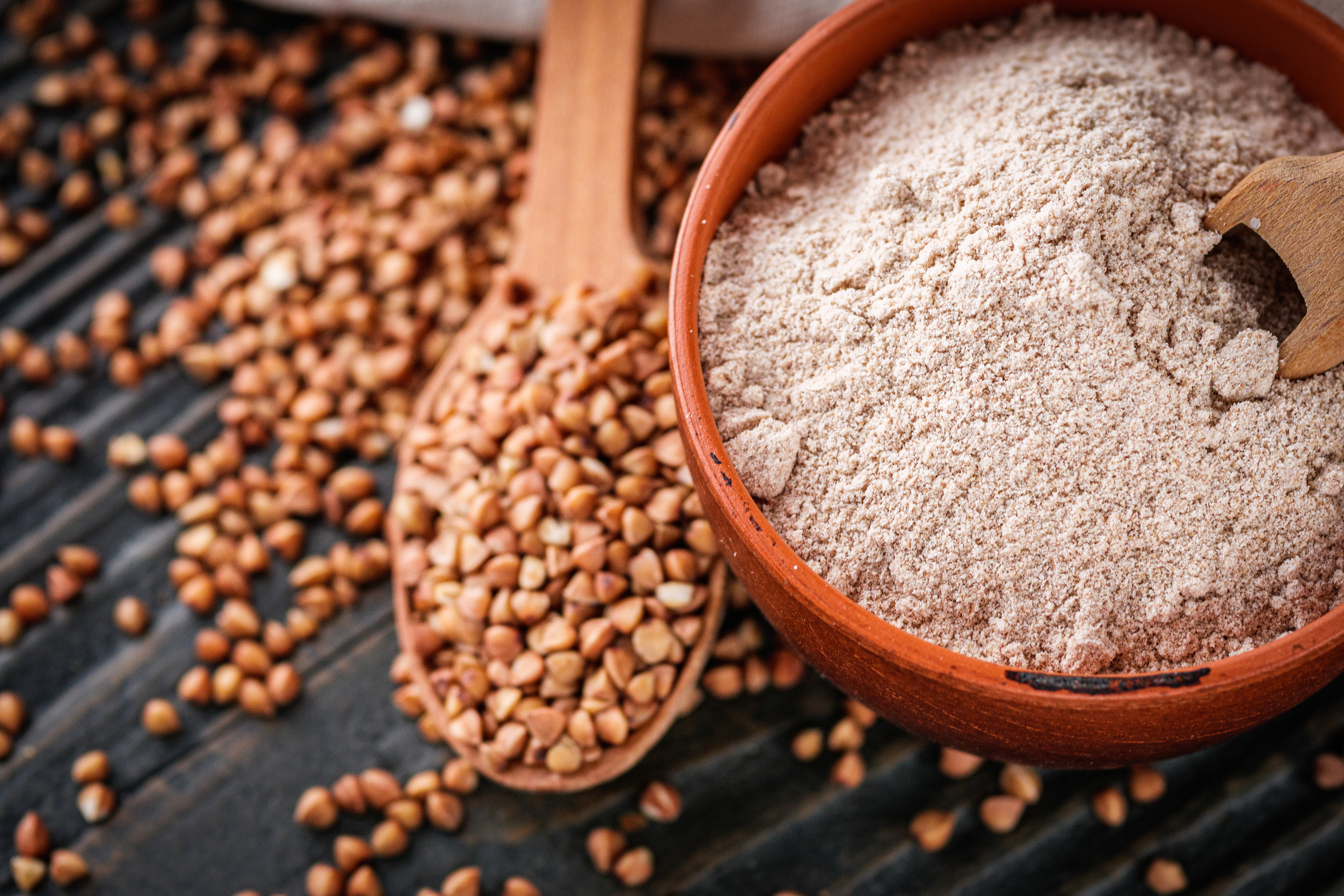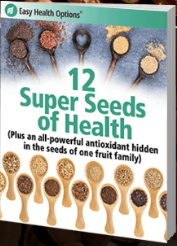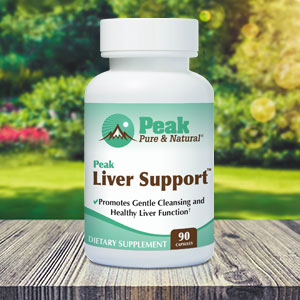Get Easy Health Digest™ in your inbox and don’t miss a thing when you subscribe today. Plus, get the free bonus report, Mother Nature’s Tips, Tricks and Remedies for Cholesterol, Blood Pressure & Blood Sugar as my way of saying welcome to the community!
The seed that takes out disease-causing cells

Seeds used in traditional cuisines are making a comeback as people turn to options like quinoa, amaranth, buckwheat and black cumin to avoid gluten and improve their health.
Recently, researchers from Japan found that a traditional liquor made from buckwheat could even be used medicinally.
Chinese buckwheat liquor, a traditional drink that contains various herbal medicine extracts, can induce autophagy, a process that cells use to clean up proteins that are damaged or no longer needed. In fact, it may hold promise for diseases associated with protein aggregation, like Alzheimer’s and alcoholic liver disease.
Taking out the trash
Numerous diseases start with a buildup of bad proteins — ones that have suffered some sort of insult.
For example, in Alzheimer’s disease dangerous proteins known as amyloid-beta and tau build up in the brain. Over time, these proteins destroy the ability to remember, think and even live independently.
In liver disease, protein aggregates build-up, keeping the organ from functioning properly and backing up toxins into the body.
So what could a liquor do to help?
Well, according to a study published in Antioxidants, Chinese buckwheat liquor and one of its components could be the secret to cleaning out these damaged proteins to keep everything working like clockwork.
The research team from Osaka University found that tartary buckwheat extract has the power to induce a process known as autophagy that cells use to clean up proteins that harm your body.
Think of it as taking out the trash.
The researchers made this incredible discovery by treating skin and liver cells with tartary buckwheat extract and looking at how different fluorescent markers of autophagy responded.
The results?
“We found that treating cells with the extract stimulated the formation of autophagasomes, specialized cellular structures that carry out autophagy, and altered the location of proteins involved in regulating autophagy,” said Takeshi Noda, senior author of the study.
When the researchers looked more closely at specific components of tartary buckwheat extract, they found that one component, quercetin, had the same effects as the extract.
These results suggest that quercetin could be a useful treatment not only for alcoholic liver disease but also for Alzheimer’s — one of the least treatable diseases of our time!
Seed snacking to keep your body on track
So get on the seed bandwagon to better health!
Add buckwheat to your diet (or go the easy route and take a quercetin supplement to take out the cellular trash that causes disease).
And make other seeds with proven health potential part of your daily diet, like:
- Black cumin – This tiny seed is researched-backed to care for your health in seven miraculous ways!
- Pumpkin – From a stronger immune system to better blood sugar, pumpkin seeds pack a punch in six areas of your health.
- Chia – Want to feel full longer, while reducing blood sugar spikes? Chia seeds could help you do both and make weight loss easier to boot.
- Sesame – These seeds with a yummy, nutty flavor should be on your must-eat list thanks to the Parkinson’s protection they deliver.
So add a little seed power to your diet and your health!
Sprinkle them on salads, add them to yogurt and smoothies, use them to bake bread and muffins, or toss them in your morning oatmeal. Just be sure to look for unsalted options and store your seeds in air-tight containers to keep them from becoming rancid.
Editor’s note: Would you like to know more about the simple seeds that can help you lose weight, breathe better, reduce anxiety, boost energy and more? Read our free report, 12 Super Seeds of Health. Click here to receive it today!

Sources:
What Causes Alzheimer’s Disease? – NIH
The good herb: Buckwheat liquor helps cells clean house – ScienceDaily














